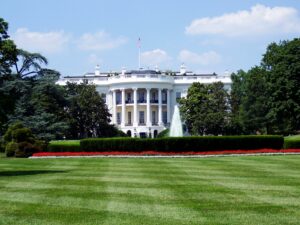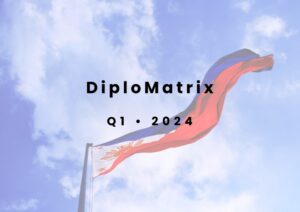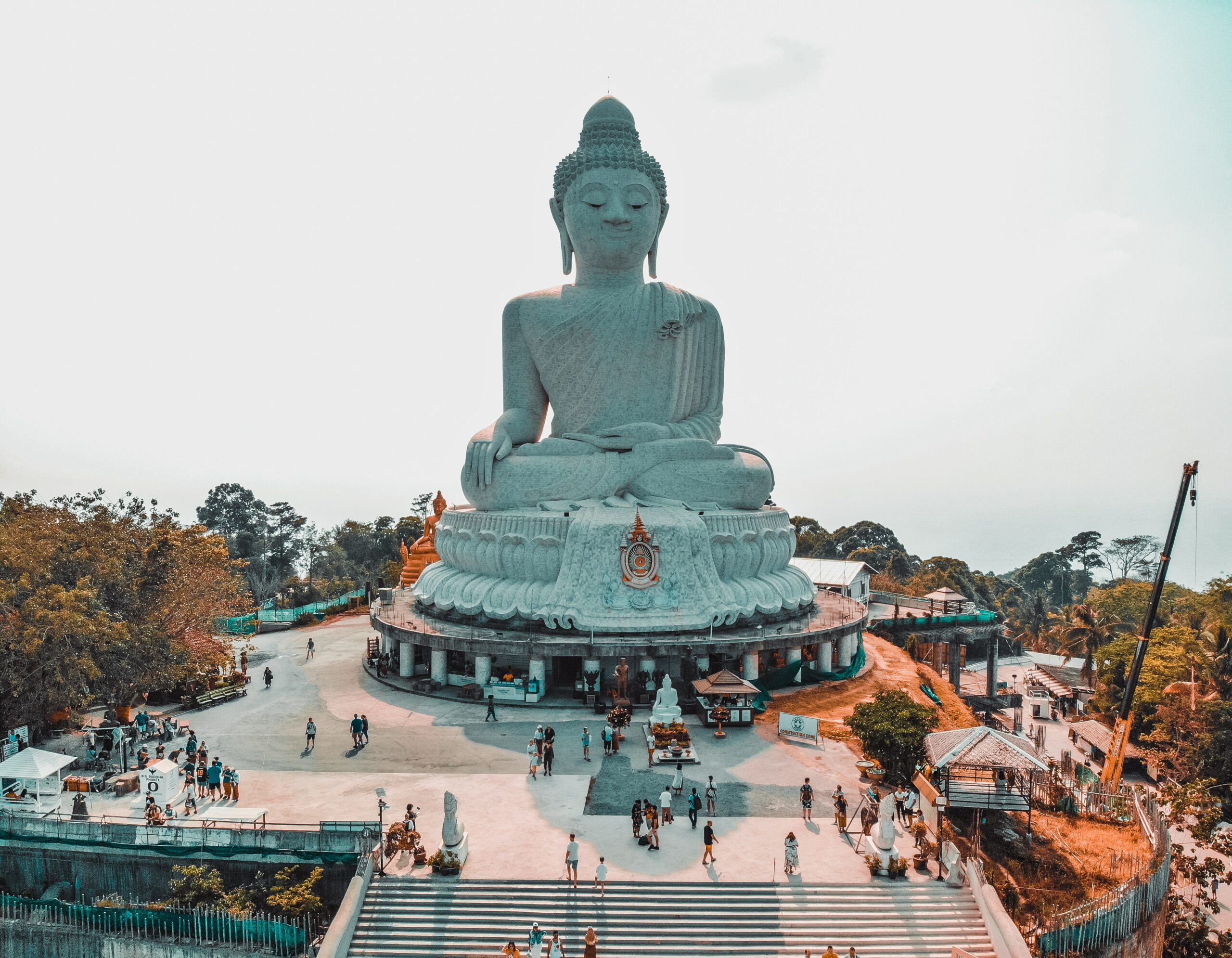By Hadrien T. Saperstein, researcher at Asia Centre.
On Tuesday the 16th of February, 2021, the opposition parties in Thailand began debating a no-confidence motion, set to be voted on Saturday the 20th of February, 2021, against Prime Minister Prayuth Chan-O-Cha and nine cabinet members from three coalition parties: Palang Pracharath Party (PPRP), Democrat Party (DP), and Bhumjaithai Party (BJT). The cabinet members include Deputy Prime Minister Prawit Wongsuwon, Interior Minister Anupong Paojinda, Public Health Minister Anutin Charnvirakul, Commerce Minister Jurin Laksanawisit, Deputy Interior Minister Niphon Bunyamanee, Labour Minister Suchart Chomklin, and Transport Minister Saksayam Chidchob. The Thai prime minister and ministers are accused of mismanaging their various portfolios during a national crisis, ranging from the failing economy, pandemic mismanagement, delayed vaccine operational roll-out, human rights violations, and corruption.
Around, Around on the Merry-Go-Round…
Yet this is not the first challenge against Prayuth and his cabinet members in the parliament. On the 28th of February, 2020, Prayuth and five ministers had previously survived a no-confidence vote with some ease (only 49 MPs voted for the motion), showing to the public not only that the government’s coalition was surprisingly cohesive but, also, that the oppositions’ coalition was chillingly disunited and lacked real coordination. After failing to convict the administration in the parliament, on the 2nd of December, 2020, the opposition forced Prayuth to attend a legal challenge against his living arrangements in the Constitutional Court. As some had forecasted prior to the decision, the case was summarily rejected. In both cases, Prayuth demonstrated a political endurance few expected. It also revealed that the political and judicial system clearly privileges his standing to that of the opposition, and, in consequence, discussions on a replacement were premature as he was likely to outlast the Hong Kong-style pro-democracy protest movement.
This time around, though, the various opposition leaders assured their respective bases that it is ready to conduct the no-confidence debate effectively considering that the negative elements and conditions extant in the previous debate are now absent. For instance, the leading minority parties stated that they will act as a single coordinated unit in contrast to the disorganisation and petty squabbling over the debating times that characterised the opposition in the previous round of debates.
There may already be some cracks in the system despite these assurances. The parallel vote – lèse-majesté reform bill – that is accompanying the aforementioned second censure debate is not finding unanimity and consensus either within and/or between the minority parties, in part due to the various versions of the bill floating around the parliament and the possible legal repercussions that may ensue. This is not solely a bad sign for the promise of unanimity and consensus but for the improvement on the speaking schedule in the censure debate. Therefore, albeit this second no-confidence debate will likely be a tougher bar to jump for the governing coalition party than the last time around in view of the worsening domestic factors, Prayut and the nine ministers are still likely to survive a no-confidence vote at this time without threatening their political standing in the near-term.
Game of Thrones – Revival Through Death by a Thousand Cuts
Knowing its previous failures and the uphill climb facing them this time around regarding a favourable no-confidence vote outcome, it therefore follows to ask: Why would the opposition in the parliament demand for a censure debate at this moment? The decision can be explained by three reasons.
First, the Pheu Thai Party (PTP) – although technically in the minority holds the largest amount of members of parliament – and the Move Forward Party (MFP) – successor to the disbanded Future Forward Party (FFP) formerly led by Tanathorn Juangroongruangkit – have yet to show systematically to the Thai populace that they are an effective opposition duo against the machinations of the pro-military parties. If either party does not show their respective bases that they are an effective opposition amid a national crisis, then they will surely lose further legitimacy at a time when many Thai citizens are already looking to blame their affiliated political parties. Their decline or stagnation may already be too far along to upturn wholesale though, especially after last year’s provincial administrative organizations (PAO) election when the Pheu Thai Party failed to maintain their traditional average provincial vote share – decline from 50% to 44.3% to 22.3% – and the Move Forward Party failed to acquire a single chief executive position. In view of the poor showing in the provincial election, the description of the largest party in the parliament as “without flair, unpublicised and ultimately empty” may perhaps stand fitting.
Second, the opposition bloc has sought to revive its stature by adopting a divide-and-conquer strategy. Simply put, the opposition sees the ineffective policies proposed and implemented by the government during the pandemic as an opening to undermine the unity of the majority coalition in the hope that its smaller constituted parties decide to break away after a harsh public outcry. Hence, the repeatedly tough attacks by Sompong Amornwiwat – leader of Pheu Thai Party – against Prayuth and the vitriolic responses by the latter in the second round of debates. This strategy may already have started to have an effect. In recent days, the smaller parties have discussed perhaps breaking away from Prayut in the case that the evidence is too damming. However, similar to an earlier coalition build-up negotiation round in 2019, the smaller parties are merely attempting to augment their position within the coalition at a time when Prayut is somewhat exposed rather than looking to exit the coalition entirely. One should, thus, not interpret this possible challenge as a signal of transformative change to come. Indeed, if the small parties were ever to have left through external incentives, they would have left at the zenith of the democratic protest movement when offers were being provided by the leading opposition party and not when the protest movement was almost at its perigee.
Third, in targeting a wide berth of ministers, in contrast to the previous no-confidence debate when it narrowly focused on censuring five ministers, the opposition bloc is astutely attempting to weaken the political standing of possible future candidates from the majority coalition prior to the 2023 general election. Punchada Sirivunnabood, an expert in Thai politics and an associate professor at Mahidol University, confirmed as much stating that “the debate may determine the future of some of the ministers as parties begin shifting focus to 2023 general elections.” Yet, if this analysis stands as correct, then this would incidentally suggest that the opposition bloc has already conceded to a relative extent that Prayuth will be the first Thai prime minister to complete a mandate since former Prime Minister Thaksin Shinawatra finished his first mandate in 2004.
Off to the Races: The 2023 General Election
As the previous section showed the censure debate cannot be altogether separated from the 2023 general election. Therefore, although the general election still stands almost two years ahead, the preparatory groundwork for the election campaign is now underway and must enter the calculus of subsequent analyses on the political parties’ behaviour in the parliament. Similar to the process in certain western democratic countries where the election campaign traditionally started only months prior to election day and over time moved to years beforehand, this aggrandisement in the election campaign days is also currently underway in Thailand. This can be partly explained by the fact that the opposition political parties in Thailand in the previous generational election (2019) had little time comparatively to prepare for their respective campaigns. In short, they are seeking to overcome this former shortcoming, not of their own making.
Looking ahead, there are at least two scenarios that could challenge or perhaps even prevent Prayuth from being (indirectly) selected once more as Thai Prime Minister in 2023. Of note, the article is doubtful that Prayuth will choose to run as a viable candidate at the head of political party and, rather, will prefer to adopt the same tactic as in the previous general election cycle: never publicly announce interest to remain prime minister and swoop in at the last minute to organise a majority coalition government.
The first, and least likely scenario, is that Prayut actually acts upon his frequent admissions of being fatigued and retires from public office on health reason justifications. Similar to the ways that Shinzo Abe stepped down suddenly during two separate tenures (2007/2020) without many closer observers having forecasted thus beforehand. This might see the rise of a prime ministerial candidate that would not normally be viewed by the Thai population as electable in a general election in the same way that Yoshihide Suga would not have likely been elected if it had gone to a general election, given his noted lack of charisma and dullness. In the Thai context, this could mean someone unexpected like Anutin Charnvirakul – Minister of Public Health – or Anupong Paochinda – Minister of the Interior – coming to power, two individuals who are greatly disliked due to their personal failure to manage the pandemic and protest movement, respectively. It could also mean the introduction of a military figurehead from the armed forces or privy council leading the majority governing coalition, like Apirat Kongsompong – former Commander-in-Chief of the Royal Thai Army (RTA) and current Vice-Chamberlain of the Royal Household and Deputy Director-General of the Crown Property Bureau (CPB).
The second, and more likely scenario, is that the second Covid-19 pandemic wave continues unabatingly across the country due to the three new covid variants which effectively retards the economic growth throughout the year or (perhaps worse yet) abated momentarily but due to further mismanagement leads to a third wave. In either case, the consequential and virulent public outrage that typically follows such mismanagement would place much of the blame on the governing party. This pressure would have the effect to pit Prayuth, Prawit Wongsuwan – leader of Palang Pracharath Party – and Anuthin Charnvirakul – leader of Bhumjaithai Party – one against another. Amid this fast-changing milieu, it is imaginable that Prayuth finds himself either without personal or majoritarian support as the smaller parties decide to exit the coalition. In other words, the unabated second wave or third wave scenario would achieve what that the minority party has thus far consistently failed to do through the no-confidence debates: break-up the majority party into subunits and then pick them off one at a time.
Although two scenarios are presented here neither are likely to transpire unless stronger signals surface in the next months to a year ahead. The lack of stronger signals at this time explains why Prayuth is likely to stay on as Prime Minister beyond the coming no-confidence vote and even perhaps into a second prime minister mandate.




